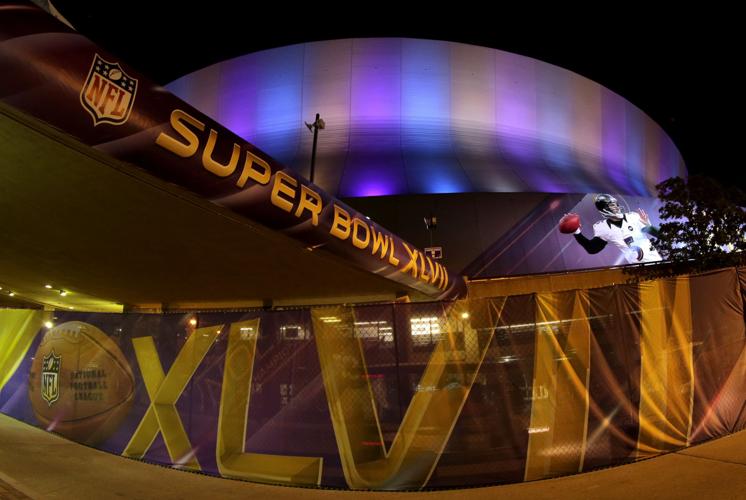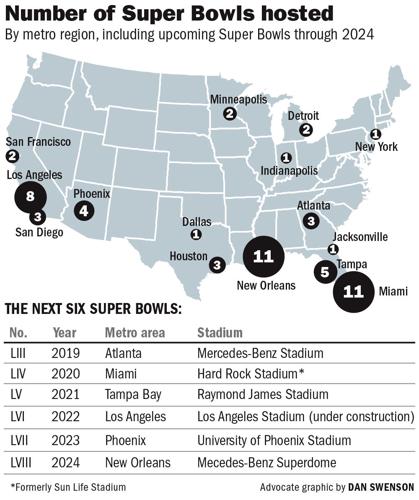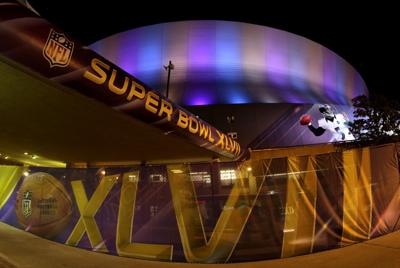ATLANTA — Gayle Benson didn’t immediately announce the news.
She was asked on a conference call with Gov. John Bel Edwards and New Orleans Mayor LaToya Cantrell how the morning went, and she told them. It was exciting and a little stressful bidding on the 2024 Super Bowl, but overall, it was a good experience to have as the Saints new owner.
That wasn’t the information everyone was waiting to hear. Those lining the halls of the Whitley hotel already had a good idea of what was happening after seeing a tray of Champagne delivered to the Saints’ room. But those on the call were waiting to hear a specific statement. A voice cut in. “Do we have good news?”
“We got it,” Benson said, confirming the end of the city’s Super Bowl drought.

The result appeared destined since New Orleans was the only location invited to bid on the game, but there were still some sleepless nights leading up to Wednesday’s vote. What if something went sideways? What if there was some type of political battle among the NFL owners? The worry was for naught. The vote came back unanimously in favor of awarding the game to the city after Benson and Saints president Dennis Lauscha’s presentation.
In the same location where Minnesota beat out New Orleans for the 2018 game, the duo's pitch centered on selling the city’s better traits — a compact downtown area, built-in entertainment and the fact it’s simply New Orleans, a location that knows how to host to the rest of the country. The theme of the bid, “NOLA 2024/7,” plays into the idea of nonstop entertainment.
“New Orleans is a very special city,” Benson said. “It’s unique. It’s different than any other city we have around. We just have so many things to offer — the food, the music, the culture, the hotels. We have it all. It should be here every year.”
But there was also an emotional aspect. During the presentation archived footage of former Saints owner Tom Benson, who died in March, played on a screen. Some of the images induced smiles. Others were a little more emotional. Gayle Benson’s words laid a “riveting” soundtrack.
“The words were on paper, but the speech was from the heart,” said Sam Joffray, of the Greater New Orleans Sports Foundation. “Everyone in the room felt it.”
Along with Benson and Lauscha, Saints COO Ben Hales and spokesman Greg Bensel, New Orleans and Company president Stephen Perry and GNSOF board member Phillip Sherman also represented New Orleans during the pitch. Joffray was also in town and worked until late Tuesday to help prep Benson and Lauscha for the presentation.
The process for bidding on Super Bowls changed this year. Instead of having several teams present competing bids, the NFL worked solely with Arizona for the 2023 and New Orleans for the 2024 game. The league realized the benefits of such an approach last year when it tapped Tampa Bay to fill in for Los Angeles, which was facing delays with its stadium construction, in 2021.

Not only did the league realize that it can generate competitive bids by taking this approach, but the new process also cuts back on the bitter feelings losing teams and cities often harbor after failing to land the game. New Orleans knows all about that after losing its past two bids to Minnesota and Atlanta, which were rewarded for building new stadiums.
So, after spending the previous six months working to appease the NFL and satisfy all of its demands, New Orleans sold the rest of the league on a city many have been longing to return to since the game was last here in 2013.
The win is a significant victory for a city that relies on travel as part of the economy.
“The economic impact is tremendous,” Cantrell said. “The last Super Bowl here generated over $480 million. So, we’re talking a significant shot in the arm. We have proven that our destination is second to none — it is special, and I believe the NFL recognizes that fact. They’re not coming to New Orleans for the 11th time for no reason.”
“The Super Bowl stands to be a major economic boost to the region,” Edwards said in a statement. ”I want to congratulate the Greater New Orleans Sports Foundation for leading the effort, and Mrs. Gayle Benson and the entire New Orleans Saints organization for serving as tremendous ambassadors for Louisiana as they made the final pitch.”
The victory was the result of six months of hard work by the GNOSF’s Jay Cicero, Joffray and others, who went back and forth with the league to meet all their demands and ready the presentation. While that group led the charge, they also worked alongside the Saints, Edwards, Cantrell, former Mayor Mitch Landrieu, the Mercedes-Benz Superdome and SMG, Ernest N. Morial Convention Center, the Louis Armstrong New Orleans International Airport, as well as several hotels and hospitality venues on the bid.
Committing to make upgrades to the Superdome was not part of the bid process or a requirement to be awarded the game. However, during her remarks after the announcement, Benson said there would be many changes made to the building before the 2024 Super Bowl.
What those upgrades will entail is not yet known. The Advocate was told Wednesday that talks and discussion on the topic remain ongoing and that the process is still undetermined.
When a digital survey and documentation for the building was approved in March, the renovations being looked at ranged in cost from $150 million to $500 million, including installing glazed windows to the stadium exterior and field-level bunker seats, removing interior ramps, and improving terrace seating, among other things.
But those things will become sorted out with time. For now, New Orleans has a Super Bowl for which to prepare. It was a long time coming, but the group finally got it done.
Now the real work begins.












